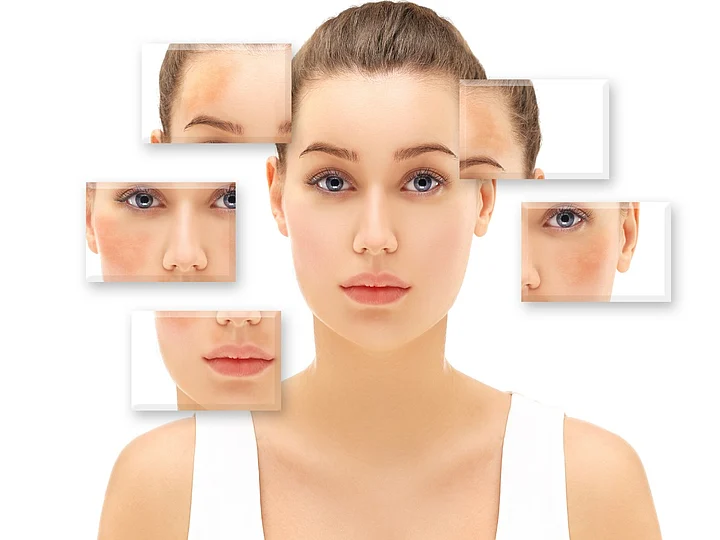Melasma is a skin condition characterized by brown or gray-brown patches, typically appearing on the face—especially the cheeks, forehead, bridge of the nose, and above the upper lip. It’s a type of hyperpigmentation that is more than just a cosmetic concern; for many, it can affect confidence and quality of life. While melasma can affect people across the globe, it’s noticeably common in sunny cities like Islamabad. Fortunately, advancements in dermatology have led to highly effective options for Skin discoloration treatment in Islamabad that can help manage this condition and restore your skin’s natural glow.
Understanding Melasma: A Deeper Look
Melasma is a chronic, relapsing skin disorder. It’s not infectious or painful, but it is persistent. The condition is most common among women—especially those of reproductive age—and people with darker skin tones, including many individuals of South Asian descent.
Typical Signs of Melasma:
-
Irregular, dark patches usually on the face
-
Symmetrical pattern, meaning both sides of the face are usually affected
-
May worsen with sun exposure, hormonal changes, or certain cosmetic products
The condition is often mistaken for freckles, age spots, or acne scars, but it’s actually the result of overactive melanocytes (pigment-producing cells in the skin).
Causes of Melasma
Melasma doesn’t have a single cause; rather, it’s triggered by a combination of several internal and external factors. Understanding these triggers is essential for proper treatment and prevention.
1. Sun Exposure
The most significant trigger for melasma is ultraviolet (UV) radiation. Islamabad’s sunny climate increases the risk of melasma flare-ups, as sun exposure stimulates melanocytes to produce more pigment.
2. Hormonal Fluctuations
Women who are pregnant, on birth control pills, or undergoing hormone replacement therapy are especially vulnerable. Melasma during pregnancy is so common that it’s often referred to as “the mask of pregnancy.”
3. Genetics
Melasma often runs in families. If your parents or siblings have experienced it, you’re more likely to develop it yourself.
4. Cosmetic Products
Certain skin-care items, particularly those that are irritating or contain harmful chemicals, can worsen melasma. This includes some unregulated fairness creams and bleaching agents, which are unfortunately still widely used.
5. Environmental Factors
Pollution, heat, and stress are additional contributing factors that can disrupt your skin barrier and make melasma more noticeable.
Why Is Melasma So Common in Islamabad?
Islamabad’s unique climate and cultural factors make melasma a frequently observed skin concern in the region. Here’s why:
1. High UV Index
Islamabad receives sunlight for most of the year, and with its clear skies and high altitude, the sun’s rays are intense. Even short daily exposures without sunscreen can result in cumulative skin damage that worsens melasma.
2. Cultural Habits and Hormonal Triggers
Early pregnancies, frequent use of hormonal contraceptives, and traditional beauty standards contribute to hormonal imbalances that can lead to melasma among women in the city.
3. Lack of Sun Protection Awareness
Many individuals still neglect to use daily sunscreen or protective clothing. Wearing SPF daily—even when indoors—is vital for melasma management.
4. Use of Harmful Skin Products
Unregulated whitening creams and home remedies are still popular, but they often damage the skin and aggravate pigmentation issues, including melasma.
Types of Melasma
Melasma can vary in depth and location within the skin. Understanding which type you have helps determine the most effective treatment.
-
Epidermal Melasma: Pigment is located in the top skin layer and is easier to treat.
-
Dermal Melasma: Pigment is deeper in the skin and may be more stubborn.
-
Mixed Melasma: A combination of both epidermal and dermal types.
A qualified dermatologist can diagnose your melasma type through a visual examination or using a Wood’s lamp.
Skin Discoloration Treatment Options in Islamabad
The good news is that melasma, while persistent, can be effectively managed with a tailored treatment plan. Here are the most recommended treatments offered at top dermatology clinics:
1. Topical Creams
These include hydroquinone, retinoids, corticosteroids, azelaic acid, and kojic acid. These agents help to lighten the affected areas by slowing down melanin production.
2. Chemical Peels
Peels containing glycolic acid or salicylic acid exfoliate the top layers of skin, revealing newer, more evenly pigmented skin beneath. This method is excellent for surface-level melasma.
3. Laser and Light-Based Therapies
Laser treatments target pigment beneath the skin’s surface and break it down for natural elimination. Q-switched and fractional lasers are commonly used, and when performed correctly, can produce remarkable results.
4. Microneedling with PRP
Microneedling stimulates collagen production and increases product absorption. When combined with Platelet-Rich Plasma (PRP), it further enhances skin repair and reduces pigmentation.
5. Daily Sun Protection
No melasma treatment is complete without strict sun protection. A broad-spectrum SPF 50+ sunscreen should be applied every day and reapplied every 2–3 hours when outdoors.
Lifestyle Tips for Managing Melasma
Melasma is a long-term condition that requires ongoing care and lifestyle adjustments. Here are a few preventive tips to keep it under control:
-
Always apply sunscreen, even on cloudy days
-
Wear hats and sunglasses when stepping outside
-
Avoid over-exfoliating or scrubbing the skin
-
Choose gentle skincare products free of harsh chemicals
-
Maintain a balanced diet rich in antioxidants
-
Stay hydrated and manage stress
By adopting these habits, you not only treat melasma but also prevent it from recurring.
Final Thoughts
Melasma might be stubborn, but it’s not unbeatable. With the right diagnosis, customized treatment, and a consistent skincare routine, you can significantly reduce pigmentation and regain clear, radiant skin. For those living in Islamabad, it’s essential to address both the internal and external factors contributing to melasma while seeking professional care.
If you’re looking for a trusted clinic that specializes in Skin discoloration treatment in Islamabad, you’re in safe hands with the experts at the SKN Cosmetic Clinic. With advanced technology and a patient-centered approach, they provide the right guidance and treatments to help you achieve lasting results and brighter skin.









